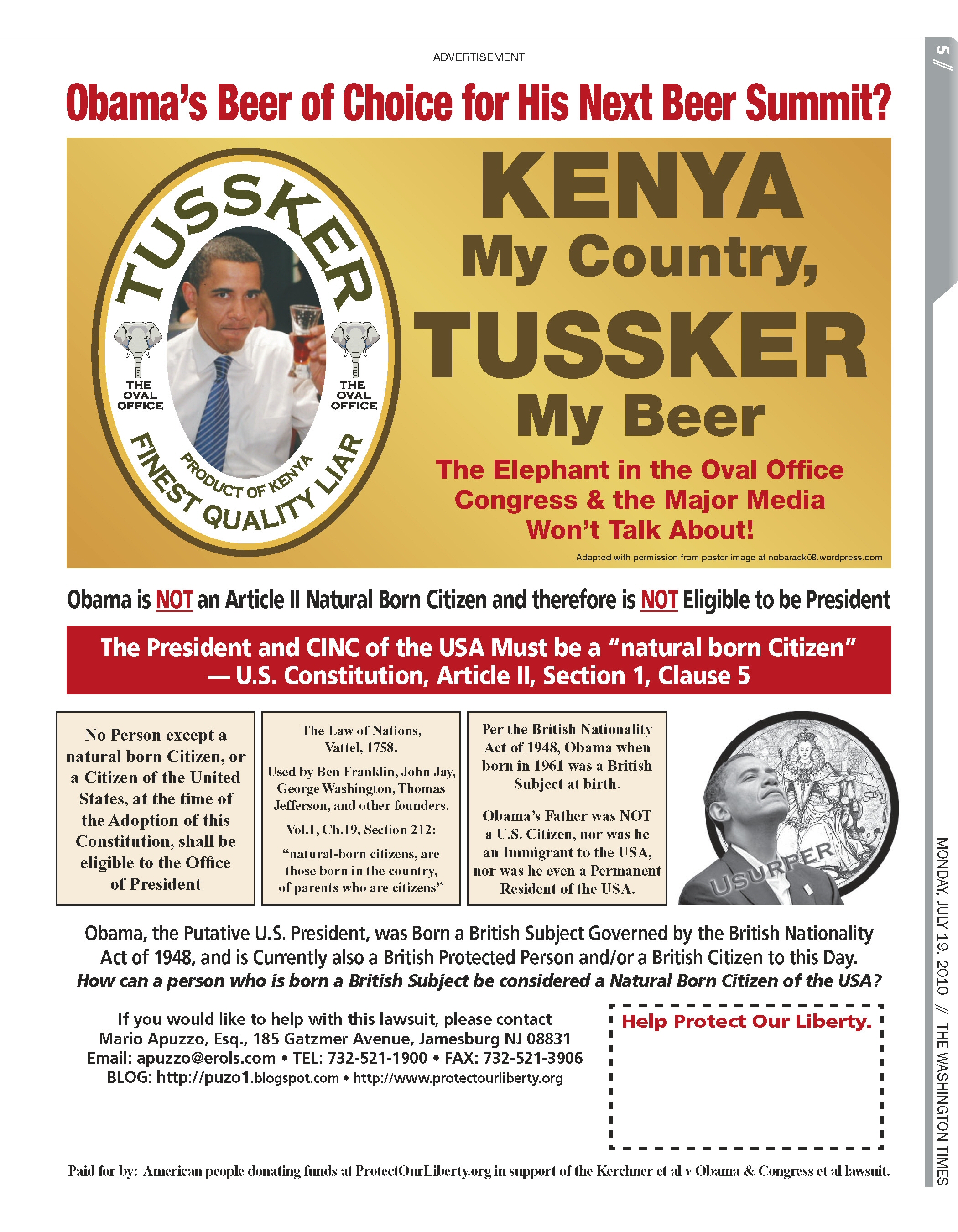 http://www.kerchner.com/images/protectourliberty/2010-07-19-issue-WTNW-pg-5-sans-coupon-text.jpg
http://www.kerchner.com/images/protectourliberty/2010-07-19-issue-WTNW-pg-5-sans-coupon-text.jpg http://www.kerchner.com/images/protectourliberty/2010-07-19-issue-WTNW-pg-5-sans-coupon-text.jpg
http://www.kerchner.com/images/protectourliberty/2010-07-19-issue-WTNW-pg-5-sans-coupon-text.jpgToo late. Imposter was already allowed to run and act like the president even thought he didn’t meet the qualifications.
Since Congress had not enacted any written laws regarding the citizenship (at birth) of persons born in the United States, the Federal courts (prior to
1866) decided the citizenship of such persons according to unwritten common law. At the time, the unwritten common law regarding federal (U.S.)
citizenship was partus sequitur patrem (a child’s citizenship at birth is that of its father, not its place of birth) [19].
In each of two Supreme Court cases — Inglis v. Trustees (1830) and Elk v. Wilkins (1884) — the plaintiff was born in the United States, of a father owing
allegiance to a sovereignty other than the United States. In each case, the Supreme Court determined that the plaintiff did not acquire U.S. citizenship at
birth: his nationality at the time of his birth was that of his father, not his place of birth [20].
Prior to the Civil War (1861), there was no federal case law supporting the birthplace-only theory (the notion that mere birth on U.S. soil is, by itself,
sufficient to confer U.S. citizenship). A child born on U.S. soil was a U.S. citizen at birth only if, at the time of the child’s birth, the child’s father was a
U.S. citizen (or at least did not owe allegiance to any foreign power):
Lynch v. Clarke [1844] is the only antebellum [pre-Civil War] decision (and apparently the only reported case in our history) that clearly finds
that jus soli per Calvin’s Case determines United States citizenship. Whatever light the case provides, though, should be adjusted by the fact
that it is the unreviewed opinion of a single state-court judge and that shortly thereafter, in Ludlam v. Ludlam, that state’s highest court, all
justices concurring, spoke differently, saying that birthright citizenship depended on parentage rather than the “boundaries of the place.”
(Mayton)
Supreme Court precedent: The courts have applied the partus sequitur patrem principle (citizenship by descent from one’s father) to determine who is,
or who is not, a federal (U.S.) citizen at birth; but the meaning of natural born citizen appears to be a separate issue [21]. To this day, the Supreme Court,
in its majority opinions, has consistently used the term “natural born citizen” only in reference to persons born on U.S. soil, to parents who are both U.S.
citizens.
hes the real big guy,,,,or maybe mooshell
This was the end of America
And half of America doesn’t even realize it
✝️🙏🛐